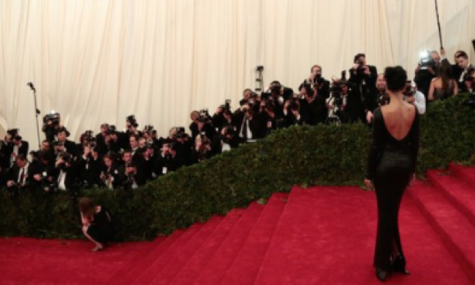2018 Met Gala: Is it the most controversial yet?
May 7, 2018

It is known as the most glamorous day for fashion of the year, but this year’s theme has caused some uproar.
This year’s Met Gala marks the 70th anniversary of the largest fundraising event in all of fashion, and the chairs of the event, Donatella Versace, Amal Clooney, and Rihanna, are attempting to make it the best one yet. However, it has been announced that this year’s theme is “Heavenly Bodies: Fashion and the Catholic Imagination,” which has stirred up plenty of talk that this theme could generate the most controversy ever on the red carpet.
With social media and television programs broadcasting the event, past themes such as “Alexander McQueen: Savage Beauty” and “Punk: Chaos to Culture” have received some controversial comments regarding outfits; however, this religious theme is sure to receive even more attention. Despite the potential to receive such backlash, planners of the Gala are confident it will be a successful event.
“Although the relationship between fashion and religion has been complex and sometimes contested, it has produced some of the most inventive and innovative creations in the history of fashion, ” said Andrew Bolton, head curator of the Gala.
The overall goal of the theme is simple: to focus on the religious visuals and their influence on fashion. Along with the celebrities doing so with their choice of outfit, the exhibit that will be present during the Met Gala will feature fifty pieces from the Sistine Chapel sacristy, many of which have never been outside of the Vatican. The range of pieces includes papal robes, rings, tiaras, and other works from the Met’s collection of religious and medieval art.
“We know it could be controversial for right wing or conservative and liberal Catholics. Yet the exhibit will focus on shared hypothesis what we call the Catholic imagination and the way it has engaged artists and designers and shaped their approach to creativity,” said Bolton.



